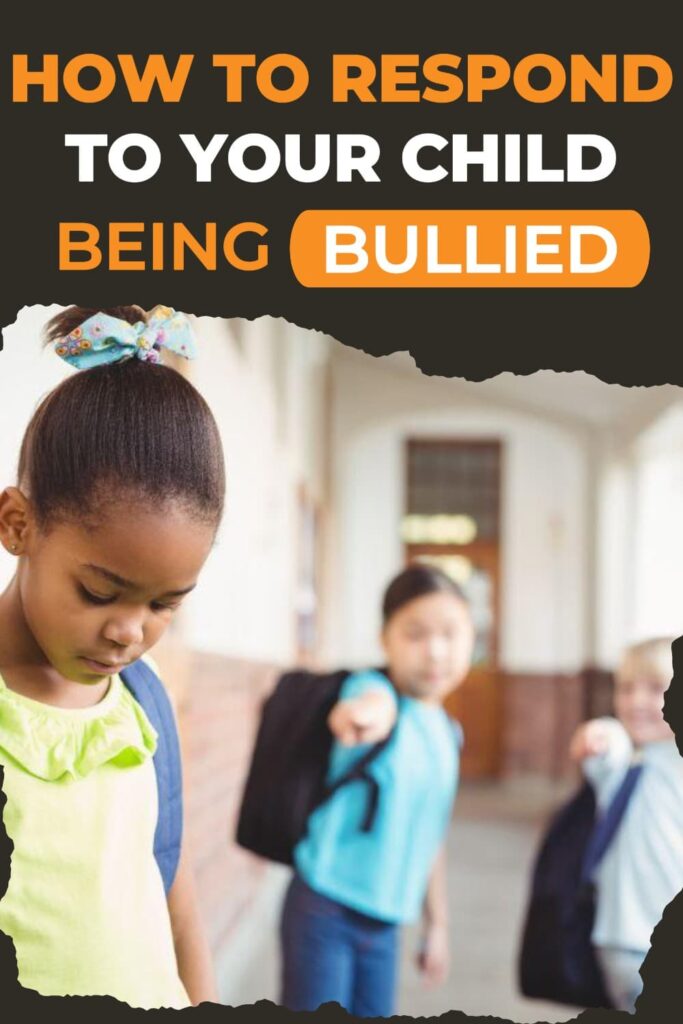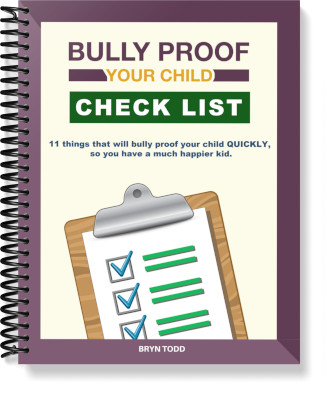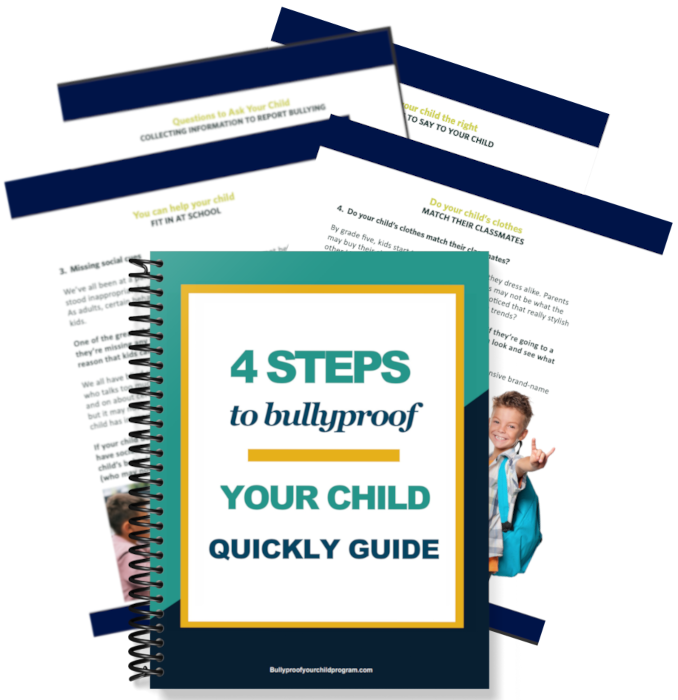
You Need to Be an Advocate for Your Child
As a parent, it’s important that you stand up for your child if they’re being bullied. Remember, you are their biggest supporter and protector. Here’s what you can do:
Your Child Probably Can’t Solve a Bullying Situation on their Own
It’s essential to understand that your child might not be able to handle a bullying situation by themselves. They could be feeling scared, embarrassed, or powerless. Let them know that it’s okay to feel this way and that they’re not alone.
You’re there to help them through this. Together, you can find a way to address the bullying and make things better. Always remind them that you’re on their side and ready to support them however they need.
You Need to Teach Your Child Skills So They Aren’t an Easy Target
It’s important to equip your child with the skills to not be seen as an easy target by bullies. Encourage your child to be assertive and confident, and to stand up for themselves.
Work with them on developing clear and effective communication skills so they can express themselves well. Also, encourage them to make friends and get involved in activities that spark their interest.
As you advocate for your child and teach them these essential skills, you help them face the challenge of bullying. Always remain calm and supportive, and make sure to listen to their concerns.
Engaging With The School
When your child is being bullied, it’s crucial to connect with their school to make sure the issue is taken seriously. Here are two ways to engage with the school:
Reporting The Bullying
The first step is to report the bullying to the school. You can do this by talking to your child’s teacher, counselor, or principal.
Make sure to give them specific details about the bullying incidents, including when and where they happened, who was involved, and what exactly occurred. If you have any evidence, like screenshots of online messages or emails, bring those as well.
The school should treat your report with urgency and start an investigation. They might already have policies in place to handle bullying, such as a code of conduct or an anti-bullying program. Be sure to ask about these policies and how they intend to enforce them to protect your child.
Collaborating With Teachers
Working together with your child’s teachers is essential in tackling bullying. Teachers are on the front lines and can offer direct support to your child at school. They can watch for any signs of bullying and intervene when necessary.

Together, you can come up with effective strategies, like role-playing scenarios or creating a safety plan, to help your child feel safer.
Keeping open communication with the teachers is key. Make sure to keep them updated on any new information or ongoing concerns, and listen to their feedback and suggestions. By joining forces, you can help create a secure and supportive environment that allows your child to thrive.
Effective Communication
Starting The Conversation
It can be tough to figure out how to talk to your child about bullying. You might worry about saying the wrong thing or making things worse. However, it’s crucial to show your child that you’re there to support them.
A good way to begin is by asking open-ended questions like, “How was your day at school?” or “Is there anything bothering you?” These questions can make it easier for your child to open up and share their feelings with you.
Remember, the goal is to make them feel safe and understood.
Active Listening Techniques
When your child begins to talk about their experiences, it’s important to practice active listening. This means you give them your full attention and show that you truly care about what they’re sharing. Here are some techniques to help you do that:
1. Paraphrasing: Repeat back what your child says in your own words to confirm your understanding.
2. Reflecting Feelings: Respond to their emotions by saying things like, “It sounds like you’re really upset about this,” to show you recognize how they feel.
3. Asking Questions: Use open-ended questions to encourage them to share more, like “Can you tell me more about that?”
4. Avoiding Judgment: Keep from judging or criticizing their feelings or actions. Focus on seeing things from their perspective.
Using these techniques helps create a comfortable and supportive space for your child to discuss bullying. Always stay calm and patient, and reassure your child that you are there to support and help them navigate this tough situation.
Strategies for Empowerment
Building Confidence
One powerful way to empower your child against bullying is to help them build their confidence. Encourage your child to recognize their strengths and interests, and to get involved in activities they enjoy and excel at.

This can boost their self-esteem and positivity, making them less likely to be affected by bullying.
You can also build their confidence by praising their efforts and achievements. Offer them positive feedback and plenty of encouragement. This shows them they are valued and supported, giving them the courage to stand up for themselves when faced with bullying.
Role-playing Responses
Another effective way to empower your child is through role-playing different responses to bullying. This exercise can help your child develop the skills and confidence needed to stand up for themselves.
Start by talking with your child about various bullying scenarios and brainstorm possible responses.
These might include using assertive statements, employing humor, or choosing to walk away. Then, act out these scenarios together, taking turns playing both the bully and the victim.
Practicing these responses in a safe, supportive setting allows your child to build confidence and prepare for handling real-life situations. This preparation can make a significant difference in how they respond to bullying when it occurs.
Frequently Asked Questions:
1. What steps should you take if you suspect your child is being bullied at school?
If you think your child is being bullied at school, the first thing to do is talk to them. Let them know you’re there to support them. Encourage your child to tell you about what’s happening and listen carefully without judging them. It’s vital to take what they say seriously and not brush off their concerns.
Once you understand more about what’s been happening, reach out to your child’s teacher or school counselor. They can look into the situation and take steps to stop the bullying. Remember, you’re your child’s biggest advocate, and your involvement can make a huge difference.
2. How can you support your child emotionally after they’ve been bullied?
Being bullied can deeply hurt your child, and providing emotional support is crucial for their recovery. Show them that you’re there for them and that you believe in them completely. Encourage your child to express how they feel and reassure them that their feelings are valid and important.
Consider getting professional help if needed. A counselor or therapist can guide your child through their emotions and teach them effective coping strategies. Remember, your support and understanding are vital as they heal from this experience.
3. What is the best way to communicate with your child’s school about bullying incidents?
When talking to your child’s school about bullying, it’s important to be clear and detailed. Provide all the specifics you can, such as who was involved, any witnesses, and what exactly happened. Consider arranging a meeting with your child’s teacher or school counselor to discuss everything face-to-face.
Always communicate respectfully and professionally. Work collaboratively with the school staff to come up with a plan to stop the bullying. Your involvement is key to ensuring your child feels safe and supported at school.
4. How can you teach your child to handle bullying situations effectively?
Teaching your child to manage bullying effectively can boost their confidence and help them feel more in control. Encourage your child to stand their ground and speak out against bullying. Show them how to use assertive communication and remind them it’s okay to seek help from adults when necessary.
Practicing through role-playing can be very effective. Act out different scenarios with your child to help them rehearse their responses. Additionally, consider signing them up for self-defense or martial arts classes, which can build their physical confidence and skills.
5. What are some signs that your child might be getting bullied that you should watch for?
If you’re worried your child might be facing bullying, watch for certain changes. These can include shifts in their behavior or mood, unexplained injuries, a sudden lack of interest in activities they once enjoyed, and reluctance to go to school or social events. Be alert to any changes in how they act or feel.
If you notice anything concerning, it’s important to talk to them about what’s going on. Your awareness and support can make a big difference in how they handle the situation.
Conclusion
Dealing with your child being bullied is tough and can stir up many emotions. It’s important to stay calm and have a plan.
Make sure you listen to your child, offer them emotional support, and take steps to tackle the situation. Always keep your child’s well-being and safety as your top priority.
By being proactive and supportive, you can help your child through the difficult challenge of bullying and empower them to stand up for themselves. Your involvement and care are key to helping them feel secure and confident again.




